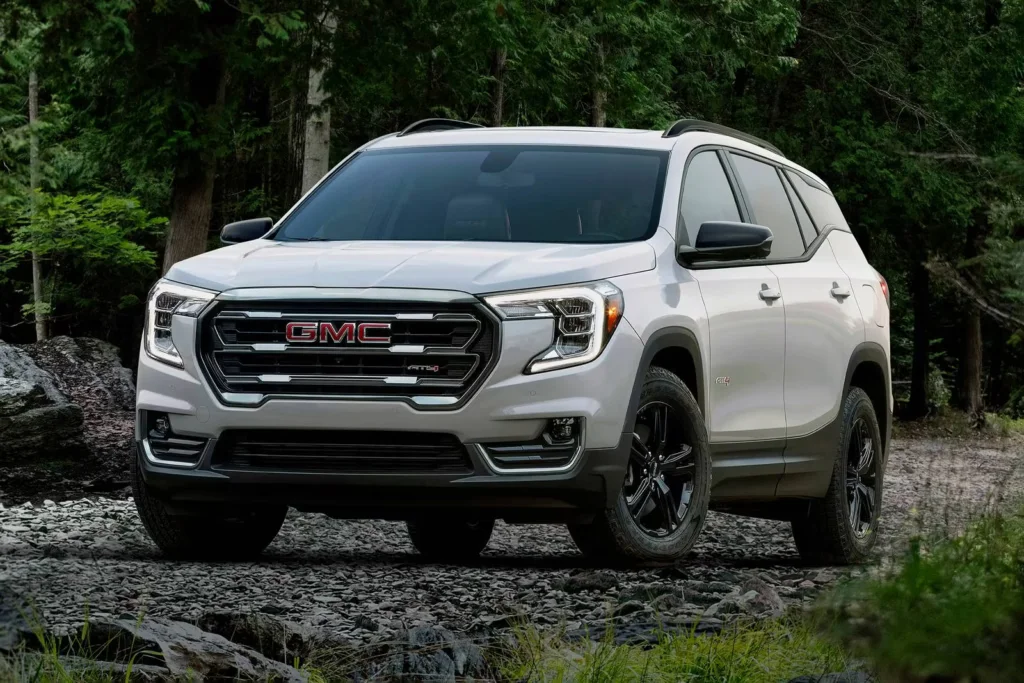Compact SUV sales have been dominated by the GMC Terrain since its 2010 launch. In this vehicle, you will find a stylish design, sophisticated features, and a high level of versatility. There are several models of this popular SUV, however.
The performance of your vehicle may be reliable in some years, but it is more likely to break down and cause costly repairs in others. In order to make an informed decision if you plan to buy a GMC Terrain, you need to know which years have the most problems.
GMC Terrain years to Avoid
The GMC Terrain has more issues with certain model years than others. Identify these problematic years in order to avoid financial hardship and stress. These model years have been identified as risky based on owner reports and expert evaluations.
| Model Year | Aspects to be considered |
| 2010-2015 | Damage to engines, transmission failures, and excessive oil consumption |
| 2018 | Transmission hesitations, infotainment glitches, and electrical malfunctions |
| 2019 | Issues related to engine recalls, transmissions, and airbag deployments |
| 2020 | Engine performance problems occasionally due to onboard electronics |
2010–2015
GMC Terrain’s first generation is known for its reliability problems, especially among models manufactured between 2010 and 2015. In these vehicles, excessive oil consumption can be caused by design flaws in piston rings. Several owners were reporting that their engines were degrading due to excessive oil consumption.
Transmission problems plagued these years as well. Hard shifting, delayed gear engagement, or total transmission failure were reported as causes of total transmission failure in some cases. This makes them less appealing to buyers looking for reliable models.
2018
GMC began its second generation with the 2018 Terrain, marking the beginning of a new design and technology era for the brand. As with previous models, this year also had its share of problems. The infotainment system and backup cameras were among the most commonly reported electrical problems. In addition, a number of owners reported that their transmissions jerked during gear shifts and hesitates during acceleration.
While there are often improvements in newer models, a vehicle’s reliability cannot be guaranteed even by a redesign. This fact is reinforced by the 2018 GMC Terrain. It is advisable for potential buyers to take a cautious approach this year.
Common Issues with GMC Terrain Model Years

There have been many challenges encountered by the GMC Terrain over the years. The ownership of certain models can be stressful and expensive due to recurring problems. Buying a used Terrain requires a thorough understanding of these issues.
Overconsumption of oil
Generally speaking, GMC Terrains are plagued by excessive oil consumption issues. There is a particularly high incidence of this problem in models manufactured between 2010 and 2015. Owners reported frequently adding oil between scheduled oil changes.
Due to faulty piston rings, oil is burned off more rapidly than usual. When your engine consumes too much oil, it can damage it and result in expensive repairs or even failure.
Failures of transmissions
Transmission issues also occur on certain GMC Terrain models. Some owners report transmission failures when there are delayed shifts, harsh gear changes, and sometimes a complete transmission failure.
Early models are prone to these problems, and fixing them can be expensive. There’s a safety hazard and a lot of inconvenience when it comes to transmission failures on older Terrains.
Deficiencies in electrical systems
There have also been electrical problems reported with GMC Terrain models produced around 2018. There are always reports of problems with electronic equipment, like backup cameras and infotainment systems.
The malfunctions can make owning a pain, so the overall satisfaction can suffer.
Lincoln MKX Model Years to Avoid: Comprehensive Guide
Taipei Self Driving Gharry: Comprehensive Guide
Buick Encore Years To Avoid 2024 [Explained]
Ram EcoDiesel Years to Avoid 2024 [Explained]
Frequently Asked Questions
What are the GMC Terrain years to avoid?
The GMC Terrain years to avoid are 2010, 2011, 2012, 2013, 2014, and 2015. These model years have been associated with numerous reliability issues and high repair costs, making them less desirable options for potential buyers.
What specific problems are common in the GMC Terrain years to avoid?
Common problems in these model years include:
Engine troubles, particularly excessive oil consumption leading to engine failure.
Transmission failures, characterized by rough shifting and complete transmission breakdowns.
Faulty airbags that may not deploy during accidents.
HVAC system issues, affecting heating and cooling performance.
Why is the 2011 GMC Terrain considered the worst model year?
The 2011 GMC Terrain is often cited as the worst due to its high number of complaints regarding excessive oil consumption, which can lead to severe engine damage. Additionally, it has reported issues with transmission failures and engine stalling while driving, making it a significant safety risk.
Are there any other notable issues with the GMC Terrain from these years?
Yes, other notable issues include:
Camshaft failures, particularly in earlier models like the 2010 Terrain.
Infotainment glitches, affecting user experience with technology features.
Poor interior quality, especially in the first generation (2010-2012), which has led to complaints about durability and comfort.
Which GMC Terrain models are considered reliable?
The more reliable GMC Terrain models include those from 2016 to 2021. These years have shown improved performance and fewer major repairs compared to earlier models.
Conclusion
You can benefit from owning a GMC Terrain if you choose the right model year. In spite of the versatility, comfort, and style that SUVs offer, there are pitfalls associated with some models. Early models from 2010 to 2015 have been known to have issues with oil consumption and transmission failures. Costly repairs can result from these issues. 2018 should be approached with caution as well due to transmission problems, in addition to electrical issues.
